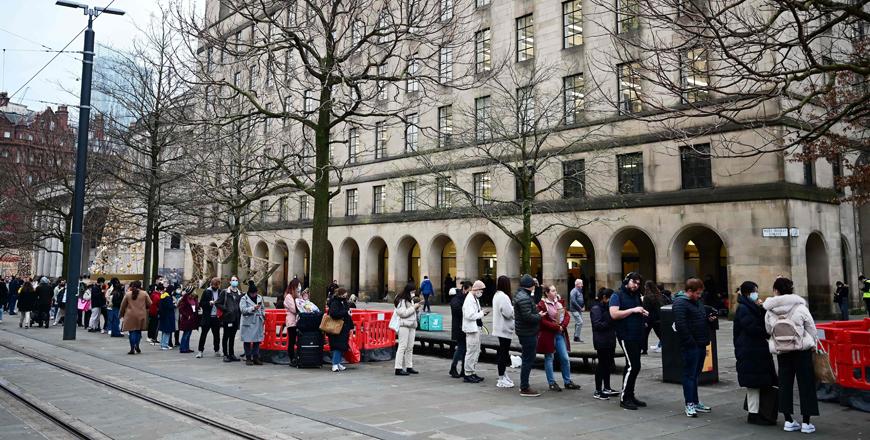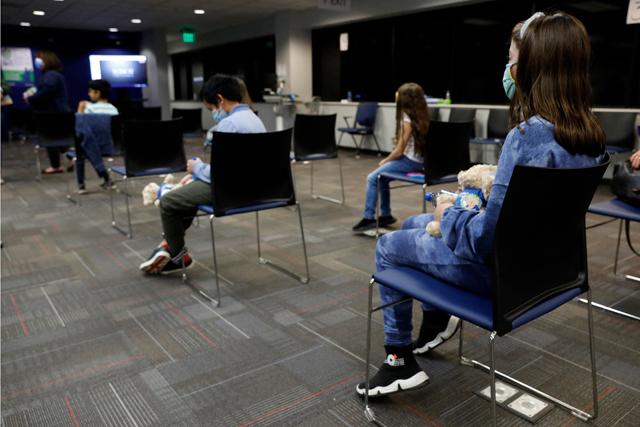You are here
Pfizer strikes global licensing deal for COVID pill
By AFP - Nov 16,2021 - Last updated at Nov 16,2021
GENEVA — US pharmaceutical giant Pfizer on Tuesday announced a deal to make its prospective antiviral COVID-19 pill available more cheaply in the world's least wealthy countries.
Pfizer will sub-licence production of its promising Paxlovid pill to generic drug manufacturers for supply in 95 low- and middle-income nations covering around 53 per cent of the world's population.
Under the deal struck with the global Medicines Patent Pool (MPP), Pfizer, which also produces one of the most widely-used COVID vaccines with German lab BioNTech, will not receive royalties from the generic manufacturers, making the treatment cheaper.
The agreement is subject to the oral antiviral medication passing ongoing trials and regulatory approval.
The Pfizer drug is to be taken with the HIV medicine ritonavir.
Interim data from ongoing trials demonstrated an 89 per cent reduction in the risk of COVID-19-related hospitalisation or death compared to a placebo, in non-hospitalised high-risk adults with COVID-19 within three days of symptom onset, said Pfizer.
Similar results were seen within five days of symptom onset, it added.
The Geneva-based MPP is a United Nations-backed international organisation that works to facilitate the development of medicines for low- and middle-income nations.
If approved, the pill could be on the market in "a matter of months", MPP policy chief Esteban Burrone told AFP.
Pfizer will forego royalties on sales in all countries covered by the agreement while COVID-19 remains classified as a Public Health Emergency of International Concern by the World Health Organisation.
Last month, the WHO maintained the highest level of alert over the spread of the SARS-CoV-2 virus that causes COVID-19.
Paxlovid, or PF-07321332, is an investigational antiviral therapy designed to block the activity of the SARS-CoV-2-3CL protease, an enzyme that the coronavirus needs to replicate.
Taking it together with a low dose of ritonavir helps slow the breakdown of PF-07321332. It therefore remains active in the body for a longer period at a high concentration, to help combat the virus.
The pill could potentially help patients avoid severe illness, which can lead to hospitalisation and death, Pfizer said.
“We believe oral antiviral treatments can play a vital role in reducing the severity of COVID-19 infections, decreasing the strain on our healthcare systems and saving lives,” said Pfizer Chairman and Chief Executive Albert Bourla.
While a multitude of vaccines have been rolled out in the pandemic, the hunt for treatments for those who have already caught the disease has not been as fruitful.
Agreement follows Merck deal
The MPP was founded by Unitaid, which works on innovations to prevent, diagnose and treat major diseases in poorer countries.
“During a pandemic, saving time means saving lives. This agreement could help us to reach more people more quickly as soon as the medicine is approved,” said Unitaid Executive Director Philippe Duneton.
Potential sublicensees have until December 6 to register an expression of interest.
The announcement comes after the MPP signed a similar voluntary licensing deal with Pfizer’s US rivals Merck & Co. last month for its investigational oral antiviral medicine molnupiravir.
Subject to regulatory approval, the deal will help create broad access to molnupiravir in 105 low- and middle-income countries.
Pills are easier to make than vaccines, do not require a cold chain for delivery and can be self-administered by the patient.
In terms of relieving health systems by preventing hospitalisations, “it’s a game changer”, said Burrone.
He said pricing for the Pfizer pill had not yet been set, but said that “in a competitive environment... the prices tend to come down” to a low level.
Doctors Without Borders (MSF) meanwhile suggested it might cost around $700 per Pfizer treatment course, in line with molnupiravir.
The medical charity said it was disheartened by the deal, saying restrictive voluntary licences were no substitute for guaranteed global access to COVID tools to bring the pandemic under control.
Related Articles
AMMAN — Hikma Pharmaceuticals PLC (Hikma), the multinational pharmaceutical company, on Thursday announced that it has entered into a licenc
WASHINGTON — Pfizer said on Tuesday that clinical trials confirmed its COVID pill — a new type of treatment that should withstand the mutati
WASHINGTON — Pfizer said on Friday that a clinical trial of its pill to treat COVID-19 had shown it is highly effective, hailing it is as a













